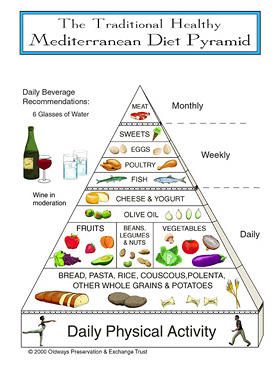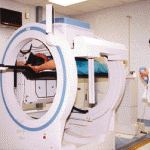Cancer is a disease that takes the lives of many every year. A lot of cancer related deaths are due to breast cancer and lung cancer – two of the most common types of cancer disease that people get. Breast cancer statistics alone shows an alarming rate of 40, 170 female deaths in the year 2009 and 440 male deaths also from breast cancer.
The good news is that scientists have been persistent in their cancer researches and with the technology called the Internet, cancer related news and information are more easily accessible to achieve now. For instance, did you know that some foods actually increase your risk of cancer while others support your body and strengthen your immune system? By making smart food choices, you can protect your health, feel better and boost your ability for cancer prevention.
Recent cancer research shows that a large percentage of cancer-related deaths are directly linked to lifestyle choices such as smoking, drinking, a lack of exercise and an unhealthy diet. When you want to prevent getting cancer, avoiding cigarettes, minimizing alcohol and getting regular exercise are a great start to an anti-cancer lifestyle. But to best support one’s health, you also need to look at your eating habits. Without knowing it, you may be eating many foods that fuel cancer while neglecting the natural and powerful health foods that can protect you. A report, entitled Food, Nutrition and the Prevention of Cancer: A Global Perspective, concludes that 30 to 40 percent of cancers are directly linked to dietary choices and confirms much of the presumption that the food we eat have a direct cancer risk effect. Helpguide.org shares some cancer prevention diet tips.
Cancer Prevention Diet Tip #1 – Focus on plant-based foods
The best anti-cancer diet is predominantly a plant-based diet that includes a variety of health foods such as vegetables, fruits and whole grains which proves that Mom was right when she said “Eat your vegetables! They keep you healthy!” Keep in mind that natural foods are better than the processed foods – meaning the less they’ve been cooked, peeled, mixed with other ingredients, stripped of their nutrients or otherwise altered from the way they came out of the ground the better. Eat an apple instead of drinking a glass of apple juice or enjoy a bowl of oatmeal with raisins instead of an oatmeal raisin cookie.
Plant-based foods are cancer-fighting powerhouses because plants have less fat, more fiber and therefore have more-cancer-fighting nutrients. These elements work together to support the immune system and help the body fight off cancer.
Cancer prevention diet tip #2: Bulk up on fiber
There’s another benefit from an anti-cancer diet that’s more on plant-based foods. Having a diet that is plant-based increases one’s fiber intake. Fiber, also called roughage or bulk, is the part of the plants that the body can’t digest. It plays a key role in keeping the digestive system clean and healthy. It helps keep food moving through the digestive tract and it also moves cancer-causing compounds out before they can create harm in the body. For example, remember those broccoli sprouts that you so hate to eat? Well cancer researchers have found that this rich source of isothiocyanates (ITCs) – a well known class of cancer prevention agents – could play a direct role in preventing bladder cancer. Remember, natural foods are higher in fiber than processed foods.
Here are simple ways to add more fiber to your diet:
* Use brown rice instead of white
* Substitute whole-grain bread for white bread
* Choose a bran muffin over a croissant or pastry
* Eat fresh fruit such as pears, bananas or apples with the skin
Some recommended fiber supplements: Fiber Choice Supplement and Benefiber Fiber Supplement
Cancer prevention diet tip #3: Cut down on Meat
 Cancer research studies show there’s a link between meat and cancer-risk. First off, meat lacks fiber and other nutrients that have been shown to have cancer-protective properties. Meat is abundant in fat – often very high levels of saturated fat. High fat diets have been linked to higher rates of cancer and saturated fat is particularly dangerous. Lastly, meat can develop carcinogenic compounds depending on how it is prepared. By reducing the amount of animal-based products you eat, and by choosing healthier meats, you can cut down your cancer risk substantially.
Cancer research studies show there’s a link between meat and cancer-risk. First off, meat lacks fiber and other nutrients that have been shown to have cancer-protective properties. Meat is abundant in fat – often very high levels of saturated fat. High fat diets have been linked to higher rates of cancer and saturated fat is particularly dangerous. Lastly, meat can develop carcinogenic compounds depending on how it is prepared. By reducing the amount of animal-based products you eat, and by choosing healthier meats, you can cut down your cancer risk substantially.
Cancer prevention diet tip #4: Choose your fats wisely
Cutting down the amount of meat you eat automatically cuts out a lot of unhealthy fat but although eating a diet high in fat increases your risk for many types of cancer, cutting out fat entirely isn’t the answer either for cancer prevention. In fact, cancer studies have shown that some types of fat may actually protect against cancer. The trick is to choose your fats wisely and eat them in moderation.
The two most damaging fats that increase cancer risk are saturated fats and trans fats. Saturated fats are mainly found in animal products such as red meat, whole milk dairy products and eggs. Trans fat on the other hand are created by adding hydrogen to liquid vegetable oils to make them more solid and less likely to spoil – very good for food manufacturers and very bad for you!
The best fats on the other hand are unsaturated fats which come from plant sources. Primary sources include olive oil, canola oil, nuts, and avocados. Omega 3 fatty acids are also good for fighting inflammation and support brain and heart health. Good sources of omega 3 fatty acids are tuna and salmon.
Cancer prevention diet tip #5: Choose cancer-fighting foods
The immune system fights off unwanted invaders in the system, including cancer cells, that’s why it’s important to eat cancer fighting foods to maximize the strength of the immune system. Eating a colorful variety gives you the best protection for cancer prevention.
* Boost your antioxidants – Antioxidants are powerful health vitamins that protect against cancer and help the cells in the body function optimally. Natural foods such as fruits and vegetables are the best sources of health supplements called antioxidants such as beta-carotene, vitamin C, vitamin E and selenium.
* Eat a wide range of brightly colored fruits and vegetables – Colorful fruits and vegetables are rich in phytochemicals, a potent disease-fighting and immune-boosting nutrient. The greater the variety of colors that you include in your anti-cancer diet, the more you will benefit. Remember: Different colors are rich in different phytochemicals.
* Flavor with immune-boosting spices and foods – Garlic, ginger and curry powder are not only good for adding flavor to the food, they also add a cancer-fighting punch of valuable nutrients.
* Drink plenty of water – Water is essential to all bodily processes. It stimulates the immune system, removes waste and toxins and transports nutrients to all of the vital organs.
Cancer prevention diet tip #6 – Prepare your food in healthy ways
Good food preparation and proper storage are also important factors for cancer prevention. The way you cook your food can either help or hurt your anti-cancer efforts. Here are a few tips for preserving the cancer-fighting benefits of vegetables:
* Eat at least some raw fruits and vegetables. Fruits and vegetables have the highest amounts of health vitamins and minerals, although cooking some vegetables can make the vitamins more available for our body to use.
* When cooking vegetables, steam until just tender using a small amount of water. This preserves more of the vitamins.
* Instead of deep frying, pan-frying and sautéing, opt for healthier methods such as baking, boiling, steaming or broiling.
* Go easy on the barbecue. Burning or charring meats creates carcinogenic substances. If you do choose to barbecue, don’t overcook the meat and be sure to cook at the proper temperature.
For additional information on healthiest ways to cook food please visit www.ThatsSuperFoods.com





